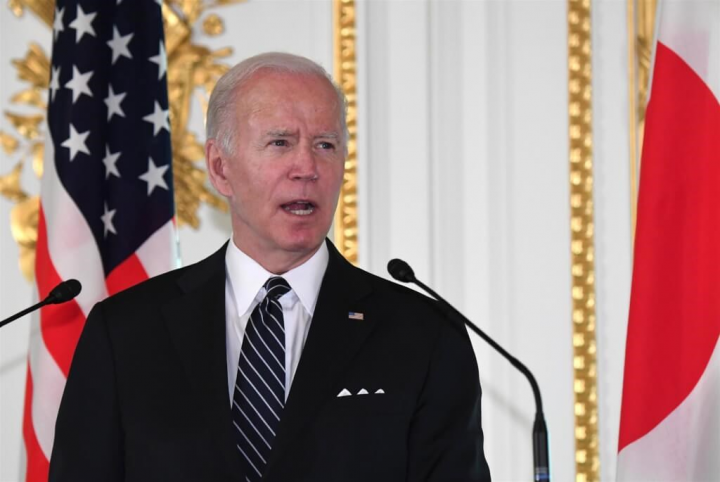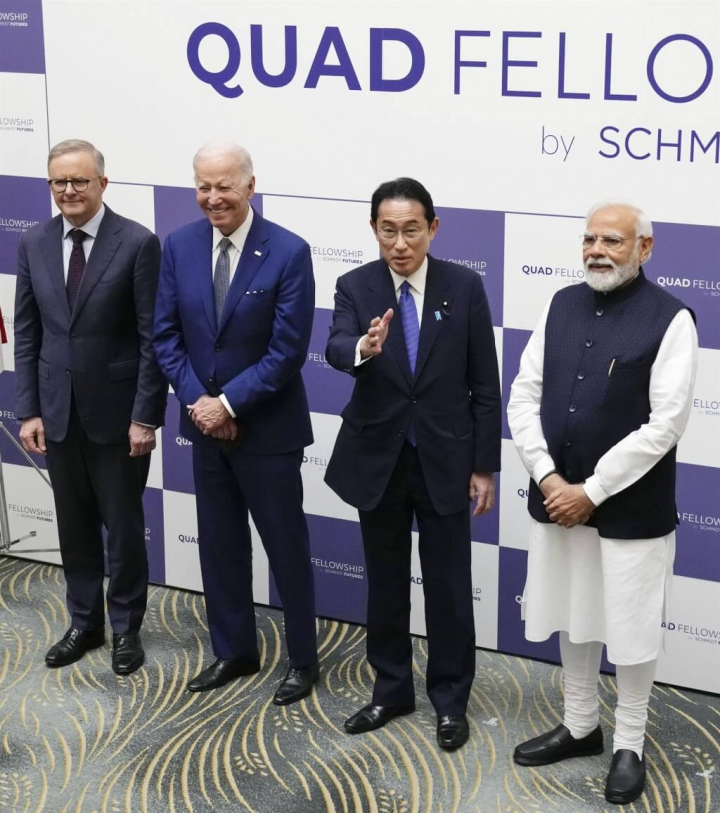

Washington, May 24 (CNA) United States President Joe Biden's recent off-the-cuff vow to defend Taiwan militarily was aimed at deterring Chinese aggression against Taiwan and was consistent with U.S. policy on Taiwan, according to some American experts.
Under China's increasing use of political suppression and military coercion against Taiwan, Biden's statement in Tokyo was meant to convey to Beijing the U.S.' intention to intervene if it were to attack Taiwan, Robert Wang, a former U.S. official, told CNA.
"The purpose is to deter China from doing so, especially following Russia's example in Ukraine," said Wang, who served as senior U.S. official for Asia Pacific Economic Cooperation from 2013 to 2015.
At the press conference after his summit with Japan's Prime Minister Fumio Kishida in Tokyo on Monday, Biden was asked "Are you willing to get involved militarily to defend Taiwan if it comes to that?"
Biden answered, "Yes. It's a commitment we made."
It was the third time Biden had answered similar questions the same way, following his remarks in an interview with ABC News in August 2021 and then at a CNN town hall event in October that year.
Biden's statement on Monday was interpreted by some as a deviation from the U.S.' policy of remaining vague on its response were Taiwan to come under attack by China, known as "strategic ambiguity," and a move toward a more open commitment of intervention, or "strategic clarity."
Biden said Tuesday, however, that the policy "has not changed at all."
The White House and the U.S. State Department have not replied to CNA's request for comment on the issue, but Wang believed Biden's answer to the question was consistent with fundamental U.S. policy on Taiwan, citing Section 2 of the 1979 Taiwan Relations Act (TRA).
It states that any effort to determine Taiwan's future by non-peaceful means is considered as a threat to the peace and security of the Western Pacific area and of grave concern to the U.S., Wang said.
The U.S. is required by the TRA to have a policy of maintaining its capacity to resist any use of force or other forms of coercion that would jeopardize the security, or the social or economic system, of the people on Taiwan, Wang said.
Wang said the policy of "strategic ambiguity" was originally intended to let Taiwan leaders know that the U.S. is not required to intervene "if Taiwan initiates or provokes the conflict."
"Biden is essentially saying that the U.S. does not see that to be the case today, and U.S. policy remains the same," Wang argued.
Michael Green, senior vice president for Asia, Japan Chair, and Henry A. Kissinger Chair at the Washington-based think tank Center for Strategic and International Studies, agreed that Biden's remarks were based on the TRA.
In his statement on Monday, Biden revealed U.S. intentions to resist Chinese coercion against Taiwan based on the TRA, "rather than an actual change to strategic clarity," Green said.
Green, who served on the National Security Council during the George W. Bush administration from 2004 to 2005, said Biden's remark reminded him of when Bush said in an interview in April 2001 that he would "rise up" to defend Taiwan if it were attacked.
Douglas Paal, distinguished fellow in the Asia Program at Washington-based think tank Carnegie Endowment for International Peace, cautioned against possible fallout from Biden's comments.
"Biden wants two incompatible things," Paal said. "He wants to reassure China that American policy is constant and non-provocative. He also wants to offer assurances to defend Taiwan."
Despite the efforts of the White House's staff to walk back Biden's remarks in favor of Taiwan by saying that U.S. policy on Taiwan has not changed, it "does not resolve this contradiction," he said.
"China is growing impatient with this and is escalating its language, and that is not likely to be a good thing for Taiwan, whatever one thinks about the ugliness of Beijing toward Taipei, or Hong Kong or others with which it has disputes," Paal said.
"I hope everyone calms down and watches one's words," he said.